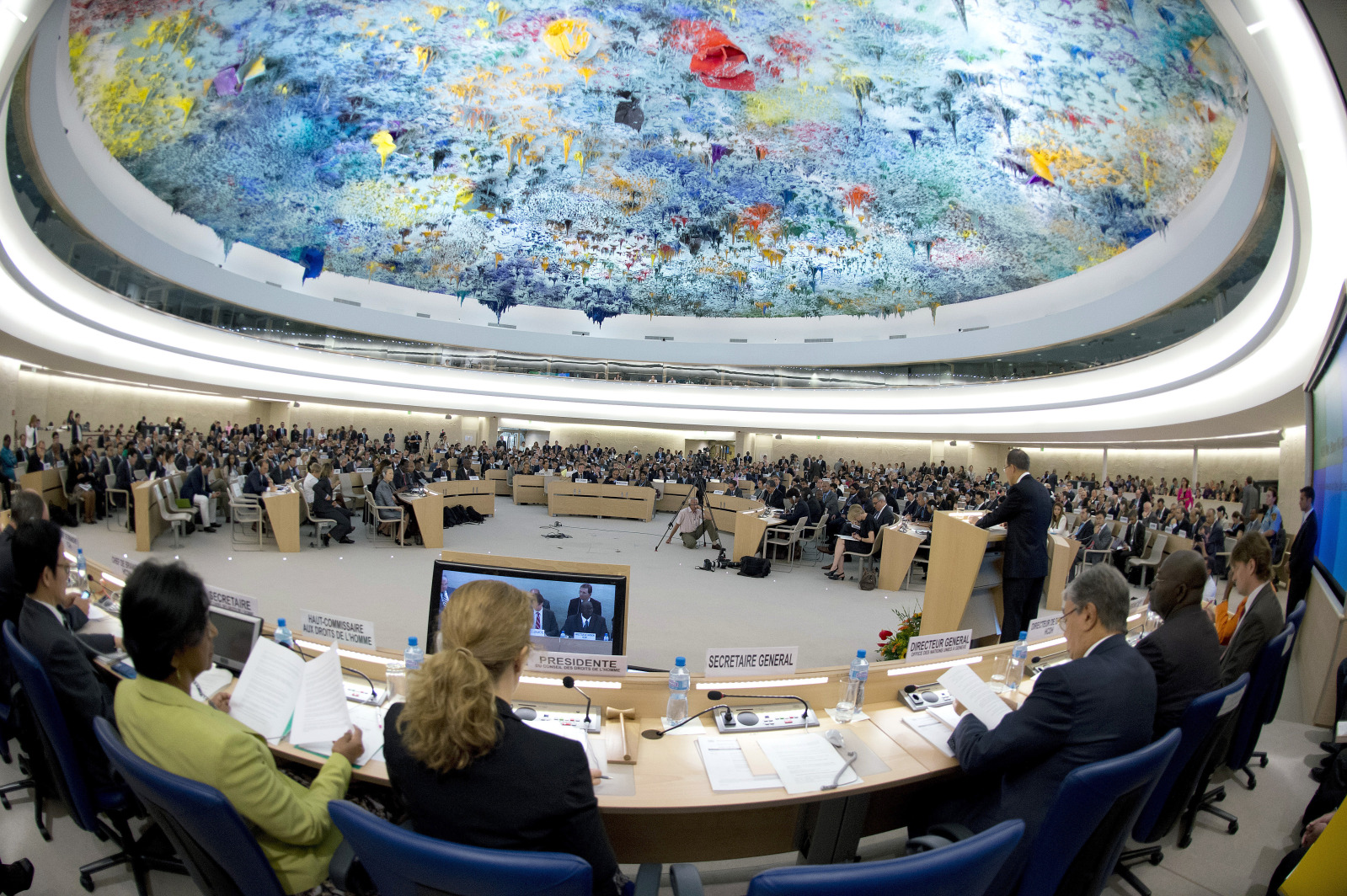33rd Regular Session of the UN Human Rights Council
Item 8: Follow up to and implementation of Vienna Declaration and Programme of Action – General Debate
Oral Statement Delivered by Ahmed Adam
On behalf of the Asian Forum for Human Rights and Development (FORUM-ASIA)
Monday, 26 September 2016
Mr. President, we note the two reports by the Secretary-General on National Human Rights Institutions (NHRIs). We are greatly concerned over threats to the role and function of National Human Rights Institutions (NHRIs) in Asia.
In Republic of Korea, following the amendment of National Human Rights Commission of Korea (NHRCK) Act the GANHRI Sub-Committee on Accreditation (SCA) reaccredited NHRCK with “A” Status,[1] however not a single commissioner was appointed in compliance with this Act or with SCA recommendations regarding their selection and appointment.[2] We call on SCA to set up an effective mechanism to follow up the implementation of its recommendations, and on governments and NHRIs to fully comply with SCA recommendations.
The appointment and selection process for commissioners of the National Human Rights Commission of Thailand (NHRCT) are not based on merit.[3] Selection and appointment must be transparent and participatory.
Inadequate resources constitutes a common problem for a significant number of NHRIs in the region. In Malaysia, the Human Rights Commission of Malaysia (SUHAKAM) has been forced to severely restrict its operational capacity as a result of the drastic budget cuts.[4] In Sri Lanka, the Human Rights Commission is struggling with inadequate financial and human resources.[5] This is contradictory to the Paris Principles that require NHRIs adequately resourced. Governments must take necessary steps in ensuring an enabling environment for all NHRIs to operate effectively.
In Maldives, the Human Rights Commission of Maldives (HRCM) has been subjected to reprisals after its engagement with the UPR. An 11-point Supreme Court guideline now imposes excessive and arbitrary restrictions particularly in relation to engagement with international human rights mechanisms.[6] We are further alarmed that this year the new Vice Chair of HRCM defended these guidelines.[7]
Thank you, Mr. President.
[1] National Human Rights Commission of Korea, NHRCK granted A status at the GANHRI SCA, 7 June 2016
[2] The NHRCK Watch, The appointment of Jang, Ae-soon as a commissioner by the Blue House is a breach of the National Human Rights Commission Act and against the international community’s recommendations, 15 June 2016
[3] FORUM-ASIA, ANNI-Thailand: Flawed Selection Process Leads to Controversial Human Rights Commission, 28 July 2015
[4] FORUM-ASIA, Malaysia: ANNI Open Letter to Prime Minister on SUHAKAM’s Budget Cut, 14 December 2015
[5] Human Rights Commission of Sri Lanka, Strategic Plan 2016-2019, Draft 8 June 2016
[6] FORUM-ASIA, The Maldives: Human Rights Commission of the Maldives (HRCM) Latest Victim of Judicial Overreach, 22 June 2015
[7] Maldives Independent, Human rights watchdog defends restrictions imposed by Supreme Court, 28 March 2016




